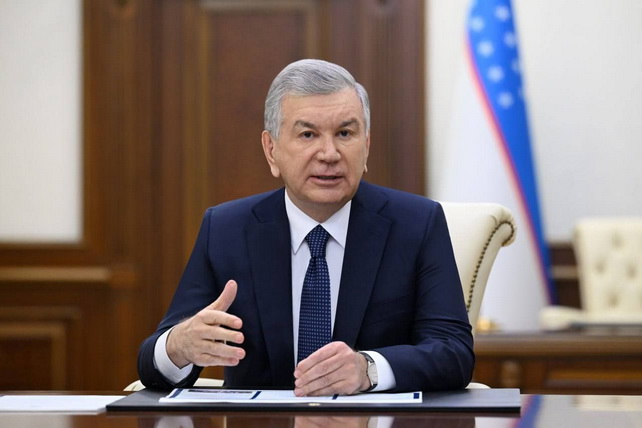
President Reviews New Healthcare Model and Measures to Improve Medical Services
President Reviews New Healthcare Model and Measures to Improve Medical Services
Tashkent, Uzbekistan (UzDaily.com) — On 19 September, President of Uzbekistan Shavkat Mirziyoyev reviewed a report on measures to further enhance the country’s healthcare system.
The discussion focused on implementing a new model of primary healthcare delivery based on international best practices, aimed at bringing services closer to the population.
Under this model, multi-specialty central polyclinics, family doctor offices, family polyclinics, and mahalla medical posts will be developed according to unified standards. The share of family doctors is planned to increase to 70%, the workload on medical staff will be reduced by nearly one-third through digitalization and decreased paperwork, and patient satisfaction with primary healthcare services is targeted to exceed 85%. A new performance-based incentive system for healthcare workers will also be introduced.
The President emphasized the need for substantial improvements in specialized care. Dozens of scientific and practical medical centers are being equipped with modern technology and provided with significant budgetary support. At the same time, challenges remain, including long queues, slow adoption of international standards, and insufficient methodological work at the primary level.
To address these issues, a review of all national specialized clinics has been proposed, with the involvement of modern professional management. The Republican Center of Oncology and Radiology, staffed with Turkish specialists, was cited as an example of successful implementation of international experience.
Clinical protocols are being revised and updated: 400 protocols have been revised so far, with plans to double this number by the end of the year. With the support of the Asian Development Bank, a methodology is being developed for tariffs covering over 3,000 medical services. The President instructed to explore the involvement of foreign professional managers in five more specialized centers or to entrust their management to leading international clinics.
The overarching goal is to develop diagnostic and treatment standards based on international experience, create national clinical protocols, implement new technologies, develop long-term strategies for specialized centers, attract highly qualified specialists, and establish a transparent system for providing quality healthcare to the population.
Special attention was given to child health, including efforts to increase breastfeeding rates. To reach the WHO-recommended level of 70% of children under six months by 2030, a national breastfeeding support program will be implemented. The program includes WHO and UNICEF initiatives such as “Baby-Friendly Hospitals” and “10 Steps to Successful Breastfeeding,” training for medical personnel, and educational activities for pregnant and nursing mothers. Legislative changes are also proposed to restrict advertising of breast milk substitutes and to improve standards for production, import, transport, storage, and sale of infant food products.
The President approved the proposed measures and issued instructions aimed at bringing healthcare closer to the population, improving quality and accessibility of services, reducing mortality from non-communicable diseases, and strengthening the health of the younger generation.
#Shavkat Mirziyoyev